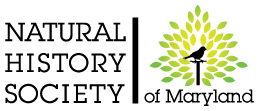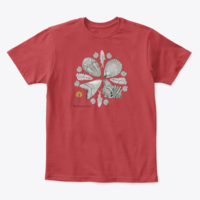The NHSM Fossil Club invites you to join Dr. Margot D. Nelson, a newly minted PhD from George Mason University, for a talk on her doctoral dissertation research on the Squalodontidae, a family of toothed whales present in the late Oligocene to middle Miocene. She will discuss what initially brought her into whale paleontology, and why the Squalodontidae was the perfect topic for a doctoral dissertation. She’ll give a travelogue of her pandemic research trip in Europe to study critical and historical specimens. Lastly, she will highlight some of her results of her dissertation research, along with some obligatory Moby Dick references.
Dr. Nelson is a transplant to the Mid-Atlantic region from the Pacific Northwest. She completed her undergraduate degree at University of Washington in Seattle, where she began her research career into the fossil record of toothed whales. She then completed her master’s and doctoral degrees at George Mason University under the guidance of eminent whale paleontologist, Dr. Mark Uhen. Now a postdoctoral researcher at the Calvert Marine Museum, she explores the evolutionary relationships, anatomy, and biodiversity of toothed whales through time.
This meeting of the Fossil Club will take place in person at 6908 Belair Rd. If you can’t make it but would like to join us virtually, email the club coordinator (mfalk@marylandnature.org) for a Zoom link and passcode.
Natural History Society of Maryland’s Fossil Club is a group of novice and more experienced collectors who meet to exchange knowledge, help with fossil identification, and discuss fossil locations and other fossil-related topics. Monthly meetings are held the first Wednesday of every month and are open to all.
If you are a fossil enthusiast, please consider joining (https://www.marylandnature.org/club-membership/). NHSM membership is $35 for individuals, $50 for families. The Natural History Society of Maryland is a volunteer-led non-profit organization, so the fee you pay will go directly to support the programs, the nature collections, and the building that make this kind of nature education possible. Learn more about NHSM Clubs: https://youtu.be/pIA7naRjXws


